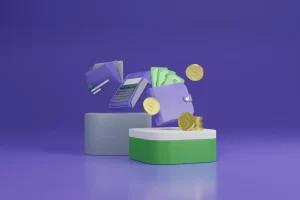Let’s be honest—our pets bring us endless joy, but their carbon pawprint? Not so much. From plastic-packed kibble to chemical-laden toys, traditional pet care can clash with an eco-friendly lifestyle. Here’s the deal: small shifts in how we care for our furry (or scaly, or feathery) friends can make a big difference. Ready to dive in?
1. Rethink Pet Food: Beyond the Bag
That 20-pound bag of kibble might be convenient, but it’s often wrapped in non-recyclable plastic and packed with questionable ingredients. Sustainable alternatives? Well, they’re easier to find than you’d think:
- Bulk buying: Some pet stores now offer bulk bins for dry food—bring your own container.
- Eco-friendly brands: Look for companies using insect protein (yes, really) or upcycled ingredients. They’re lower-impact and surprisingly tasty for pets.
- Homemade meals: With vet guidance, you can whip up balanced meals using local, seasonal produce. Just avoid onions, garlic, and other no-nos.
The Scoop on Biodegradable Poop Bags
Here’s a stat that stinks: 500+ years—that’s how long a standard plastic poop bag takes to decompose. Opt for plant-based or compostable bags (check if your local facility accepts pet waste). Or, if you’ve got the space, a dedicated pet waste composter works wonders.
2. Toys & Accessories: Less Plastic, More Planet
That neon rubber bone? Probably made from PVC and phthalates. The good news? Sustainable swaps are often more engaging for pets. Try:
- Natural materials: Hemp rope toys, felted wool balls, or untreated wood chews.
- Upcycled items: An old sock knotted around a crumpled paper bag? Instant cat toy.
- DIY agility courses: Use fallen branches or repurposed furniture for doggo obstacle courses.
The Bedding Dilemma
Memory foam beds might seem cozy, but they’re petroleum-based. Instead, look for beds stuffed with recycled fibers or kapok (a plant-based fluff). For small pets, shredded newspaper or hemp bedding beats synthetic fluff.
3. Grooming: Skip the Chemicals
Ever read the ingredients on flea shampoo? Yikes. Eco-friendly grooming isn’t just gentler on pets—it’s safer for waterways too:
- Shampoo bars: Like the ones you’d use, but formulated for pets. Zero plastic bottles.
- Apple cider vinegar rinses: Diluted, it’s a natural flea deterrent and coat brightener.
- Bamboo brushes: They’re compostable when the bristles wear out.
Flea Control That Doesn’t Harm the Ecosystem
Chemical flea treatments can wreak havoc on pollinators. Alternatives? Diatomaceous earth (food-grade only!), nematodes for your yard, or a simple flea comb. Consistency is key—natural methods require a bit more elbow grease.
4. Adopt, Don’t Shop (Responsibly)
Purebred pets often come with a hidden environmental cost—intensive breeding practices, transportation emissions. Adopting from shelters helps, but if you’re set on a specific breed, research ethical breeders who prioritize health over profit.
The Pet Population Problem
Spaying/neutering isn’t just about preventing unwanted litters—it reduces the resource strain of pet overpopulation. Some clinics even offer low-cost programs with biodegradable sutures.
5. Travel & Outings: Lighten the Load
Weekend hikes with your pup? Awesome. But those disposable poop bags and plastic water bottles? Less so. Pack a reusable silicone collapsible bowl and a stainless steel water bottle. For cats, skip the disposable litter trays—opt for a portable, washable box instead.
Carbon Pawprints on the Road
Pet-friendly road trips are fun, but idling the AC for hours while Fido naps in the car? Not ideal. Park in shade, use reflective window covers, or—better yet—choose pet-friendly lodging with green certifications.
Final Thoughts: Progress Over Perfection
Nobody’s expecting you to knit your dog a sweater from recycled yarn (unless you want to—no judgment). Start with one change—maybe swapping to biodegradable poop bags or trying a shampoo bar. Small steps add up, and honestly? Your pet won’t know the difference… except maybe for that extra sparkle in their coat.
 Post-Viral Recovery Protocols and Long-Term Immune System Retraining
Post-Viral Recovery Protocols and Long-Term Immune System Retraining  Building a Resilient Microbiome for Urban Living and Processed Food Environments
Building a Resilient Microbiome for Urban Living and Processed Food Environments  The Future of Sustainable Urban Logistics: How Last-Mile Delivery is Getting a Green Overhaul
The Future of Sustainable Urban Logistics: How Last-Mile Delivery is Getting a Green Overhaul 










